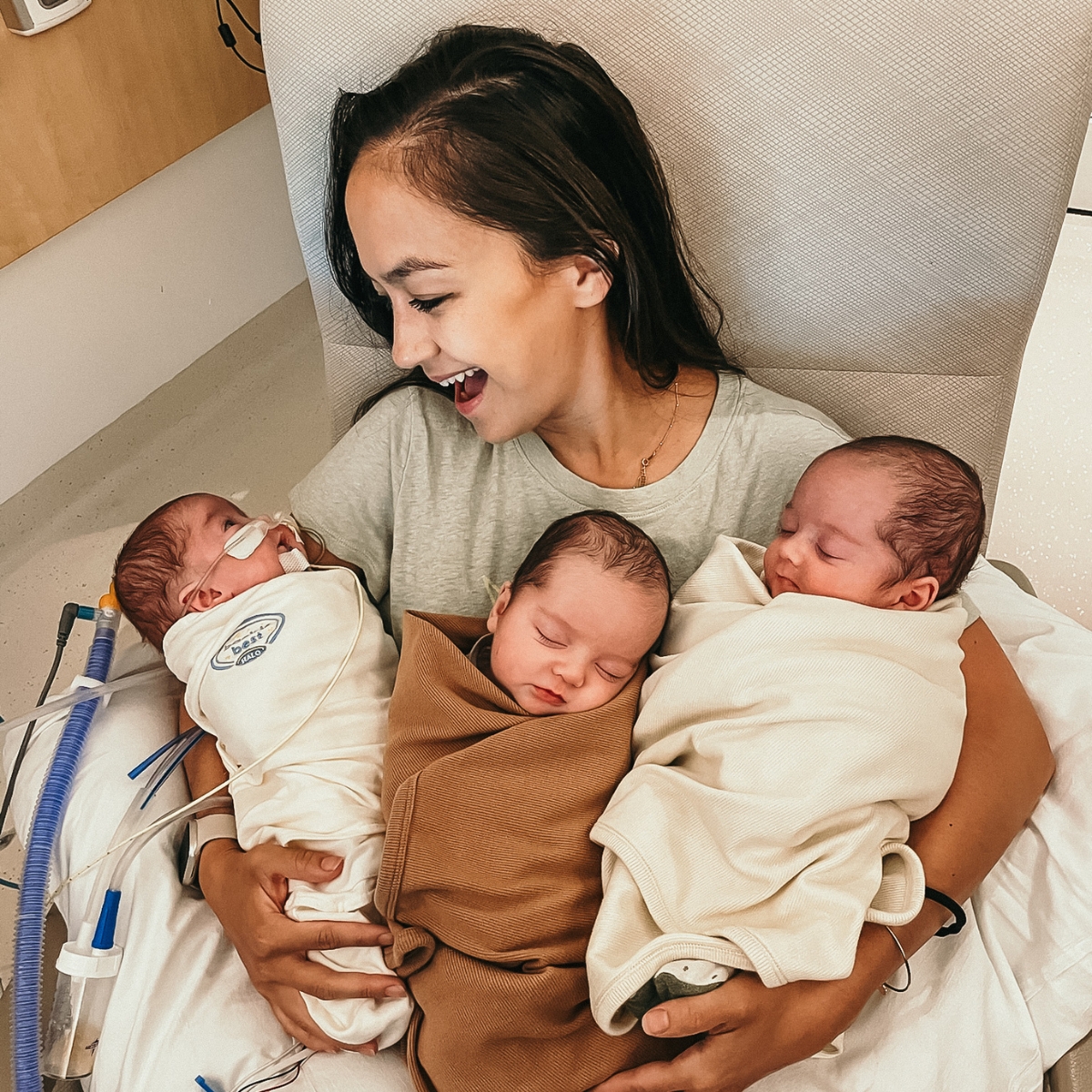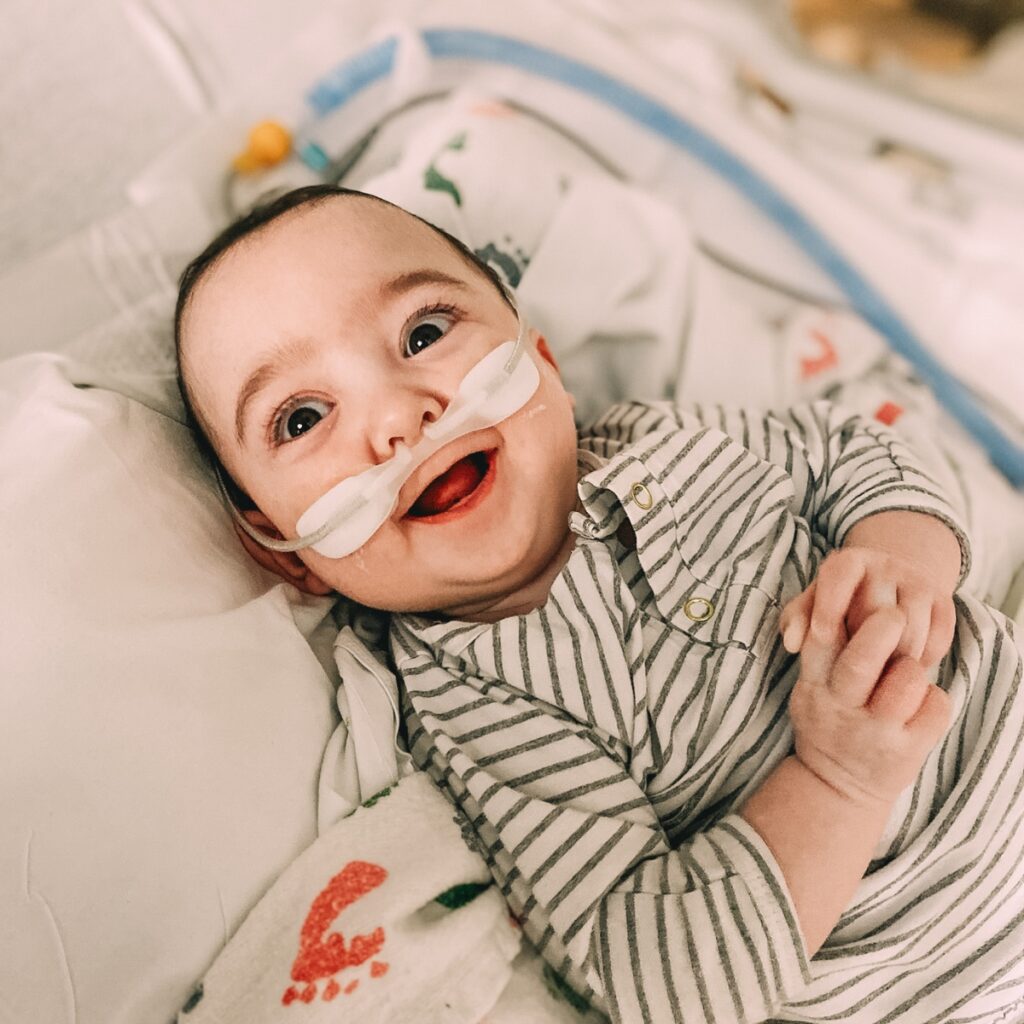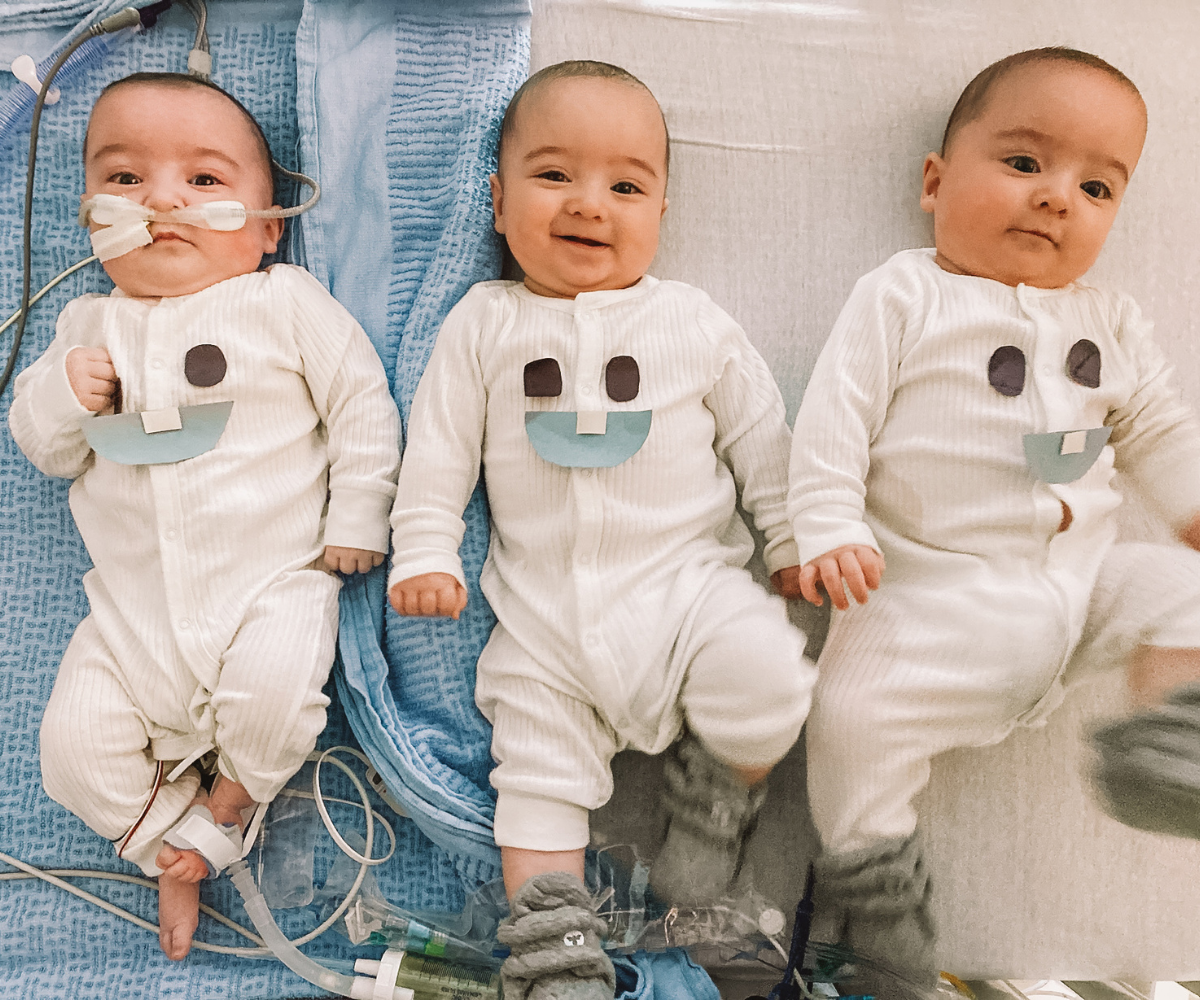Rosie & Leo
Leo Naccarato is a 10-month old triplet, who has bravely faced more in his first year of life than most of us do in a lifetime. Leo has lived his entire first year in a hospital. He has never seen trees, heard birds, or felt a breeze and the warmth of the sun. He has endured five major surgeries, been intubated for long periods of time, battled Sepsis, and needed ECMO life-support. Through all of this, his mother has been by his side, researching, learning, and advocating for his care through an ever-changing and complex healthcare system. As for Leo, he has lived up to his nickname, “Leo the Lion,” with a courageous heart, an undeniable will to live, and a joyful disposition that can light up even the darkest days.
Rosie, a founding-coach at Tacoma Vie Athletics, discovered she was pregnant with spontaneous, identical triplets in the Fall of 2022. With no family history of multiples, Rosie and her husband, Connor, were shocked to learn their one-year-old daughter, Luna, would soon have three siblings. Not only was Rosie carrying triplets, but the pregnancy was extremely high risk with the three boys sharing one placenta and two of them sharing an amniotic sac. The chances of this occurring are less than 1/100,000,000.
Rosie was admitted to St Joseph’s Medical Hospital at 26 weeks pregnant. Leo, Mac and Cruz were born at 30.5 weeks. After a 52-day stay in the NICU, Mac and Cruz were thriving and well-enough to go home. Their identical brother Leo, however, was just starting his journey.
In the interview below, Rosie shares the hurdles she and her family have encountered over the past year and the possible challenges ahead.
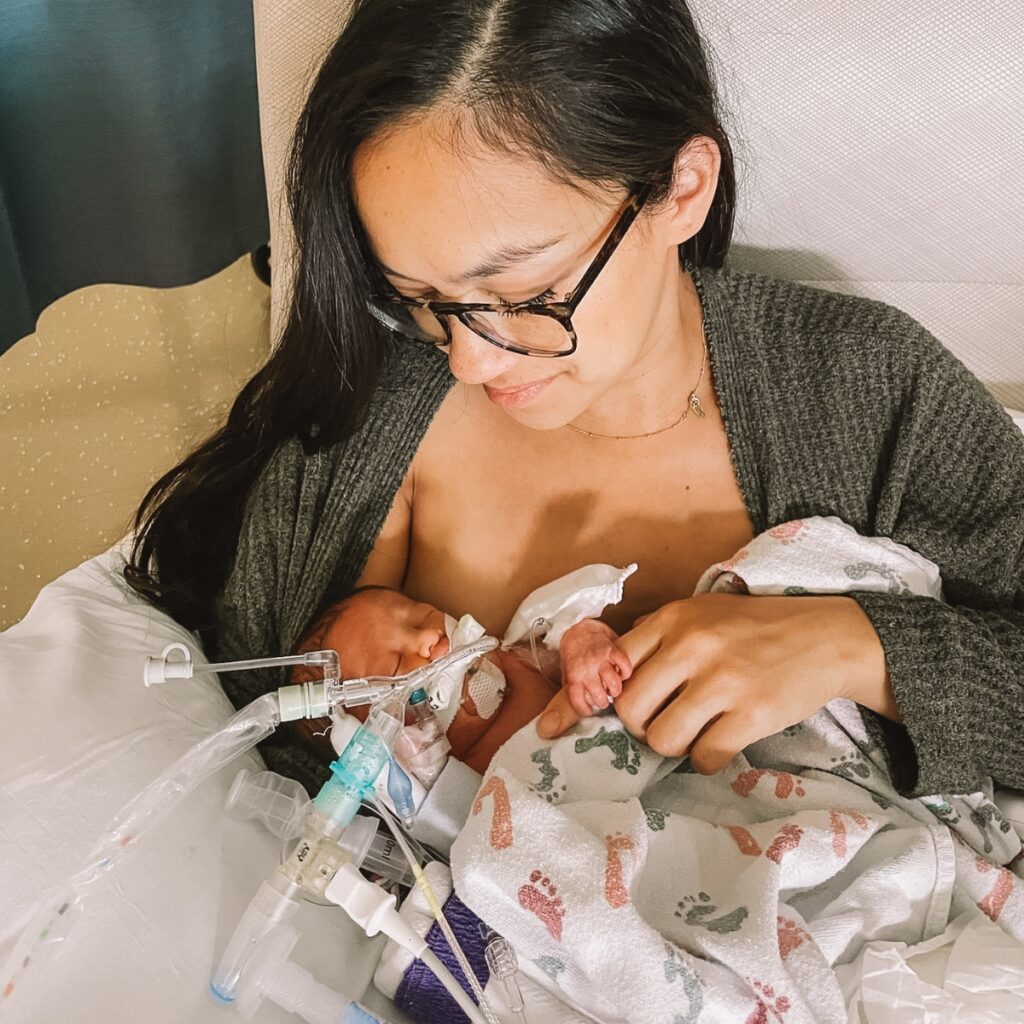
As you read Leo’s story, it’s clear that the Naccarato family needs our love and support. If you feel moved, please consider a donation through the Vie Athletics GoFundMe. If you live in Washington, join us on April 28, 2024 for a Vie Athletics workout and brunch at Farm12, with proceeds benefiting Leo’s recovery. Buy Tickets here (limited spots available).
Your contributions will support expenses related to Leo’s medical care; gas to and from Seattle Children’s Hospital; childcare for Leo’s three siblings; and the extensive occupational, physical, and alternative therapies that Leo will require when he comes home (not all of which are covered by insurance).
In Rosie’s Words

Vie: Can you share a bit about your pregnancy & Leo’s condition?
Rosie: Connor and I were overjoyed, yet shocked, to discover we were expecting triplets. Our joy soon turned to concern when we learned about their rare and risky condition. All three boys shared one placenta, and Mac and Leo shared an amniotic sac, a scenario less than 1% of all triplet pregnancies face. This situation put them at high risk of cord entanglement and other complications.
Because they all shared the same placenta and had many crossing placental arteries, if one baby ended up passing away, the likelihood of the others having a stroke or dying was very high. Due to this risk, it was under medical protocol that we were asked multiple times if we wanted to terminate the highest risk baby; Leo. We strongly felt that these babies were made specifically for us; we felt we could rise to the task, and that God was by our side. We had no interest in ending the life of any of them, but the enormity of just being asked, because of how risky the pregnancy was, felt unbearable some days.
Halfway through my pregnancy, an anatomy scan showed that Leo had a shift in his heart placement. No one knew why. Fortunately, all three boys made it safely through the pregnancy. Two days after he was born, however, Leo was unexpectedly rushed to Seattle Children’s Hospital for an emergency surgery to correct an intestinal obstruction. As he was healing, he had a CT scan of his chest to determine the cause of his shifted heart. We could have never been prepared for what showed on the scan. According to this medical team, the results were “ominous.” The CT showed Leo had multiple congenital abnormalities, including a defect within the cartilage of his trachea (airway/windpipe). It also showed underdevelopment of his right lung, and an abnormal connection from his esophagus to his right lung. These abnormalities made it so Leo was breathing through a very tiny airway, and as he grew, his airway did not.
Since then, Leo’s journey has been a rollercoaster of medical challenges, from emergency surgeries to life-threatening conditions requiring ECMO support.
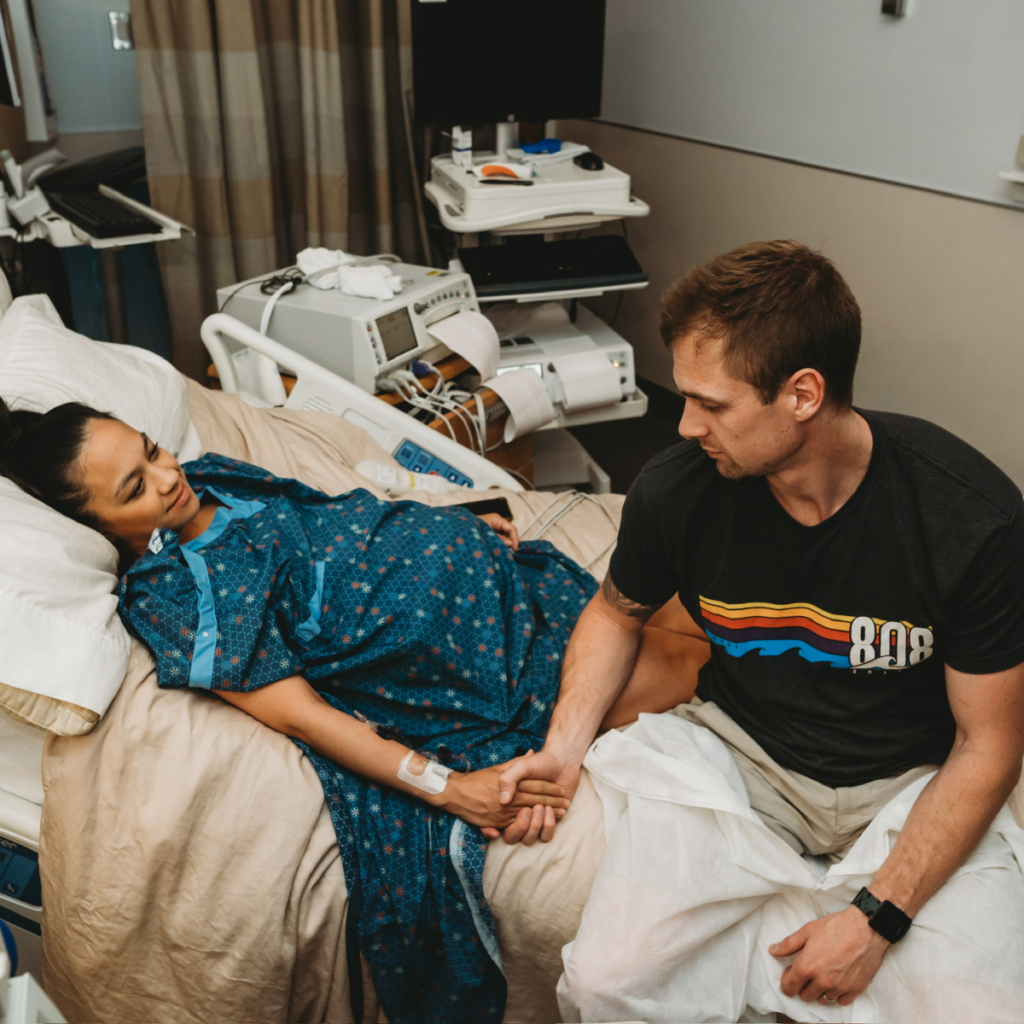
Vie: What have been the most significant challenges in Leo’s medical journey?
Rosie: After seeing his CT scan and how tiny his airway was, the team at Seattle Children’s Hospital was convinced that he would not be able to breathe without being intubated. He was too small to have major airway surgery at the time. For months, we went through many incidents where the ventilator tube would cause his airway to swell and he would move into respiratory failure. There were multiple days when we thought his airway could no longer handle it, and we had to have terrifying conversations about what our options were if we began to lose him. I specifically remember the moment when two team members told me that if he began to struggle, he was not a candidate for surgery or lifesaving measures such as ECMO, because he was too small at the time. I was so full of anger and fear, asking them if this was their own child, wouldn’t they at least try– try the surgery to see if he could make it?
Leo spent many days sedated, only opening his eyes to peek at me, if at all. He went through so much trauma we had to do a CT scan and an EEG of his brain to make sure he was doing okay. It was so hard to watch him go through these episodes and not be able to hold him. We spent weeks only being able to hold his little hand wrapped around our finger, or simply rubbing his head. I would sing “Somewhere Over the Rainbow” over and over to let him know I was there.
His journey has been one of immense challenges but also of incredible milestones. The joy of seeing him awake, giving us those big, beautiful “I love you” stares, has been our greatest reward. Leo, our social baby, has not only captured our hearts but also the hearts of everyone at Seattle Children’s Hospital. He is known on the ICU floor for being the one who wants to be held and snuggled, and sung or read to. Staff stop in throughout the day from across the PICU and NICU just to get their daily dose of Leo and his smiles.
Vie: How have you navigated the healthcare system to ensure Leo receives the best care?
Rosie: I feel like I have learned enough to write a book on advocating for a child during a prolonged hospital stay. The cornerstone of my approach is trusting my intuition as Leo’s mother, recognizing that my connection to him is the most direct form of communication. I often find myself advocating for treatments that diverge from the medical team’s initial plans, because as his mother, I know him best. This process has been empowering, pushing me into a “mama bear” mode, influencing not just his treatment but potentially aiding other families in similar situations. The experience highlights the vital role parents play in their child’s care, reinforcing the necessity of our involvement.
As an example, Connor and I pushed for the removal of the ventilator, believing in Leo’s strength to breathe on his own. It was a miraculous moment when, against all odds, Leo was weaned off support and was able to breathe independently without complications when he was 8 months old. This journey is teaching me the importance of being his voice and the power of motherly intuition in medical settings.
Vie: How have you found strength during the toughest days?
Rosie: I’ve had the terrifying experience of getting middle of the night phone calls asking me to come to the hospital “just in case.” I’ve had to watch a “code” being called on my baby multiple times because he stopped breathing; an experience where 15-20 people rush into the room and begin emergency ventilation support. I’ve watched them do CPR while his entire body turned white. I’ve watched him get put on life support as his entire blood supply filtered into a machine and back. In January and February, I watched him have episodes almost every other day where his airway would collapse and his will to breathe would become less and less for hours on end. I watched him go into full-blown septic shock and the beginning stages of organ failure. Twice in his life, I have had to go a full month without holding him in my arms due to his fragile condition.
The countless nights filled with dread, watching my son battle for every breath, taught me the true strength of a mother. It’s a strength that comes not from searching but from the sheer necessity of being there for Leo. My faith, prayer, and the unwavering support from our community have been my pillars during these times.
This journey has also shown me the power of family support. My mother, mother-in-law, sisters, and husband have been my rocks, ensuring Leo never feels alone and that our family remains strong despite the circumstances. Their sacrifices, and the continuous support from family and friends, have lightened the burden, reminding me that we’re not alone in this fight.
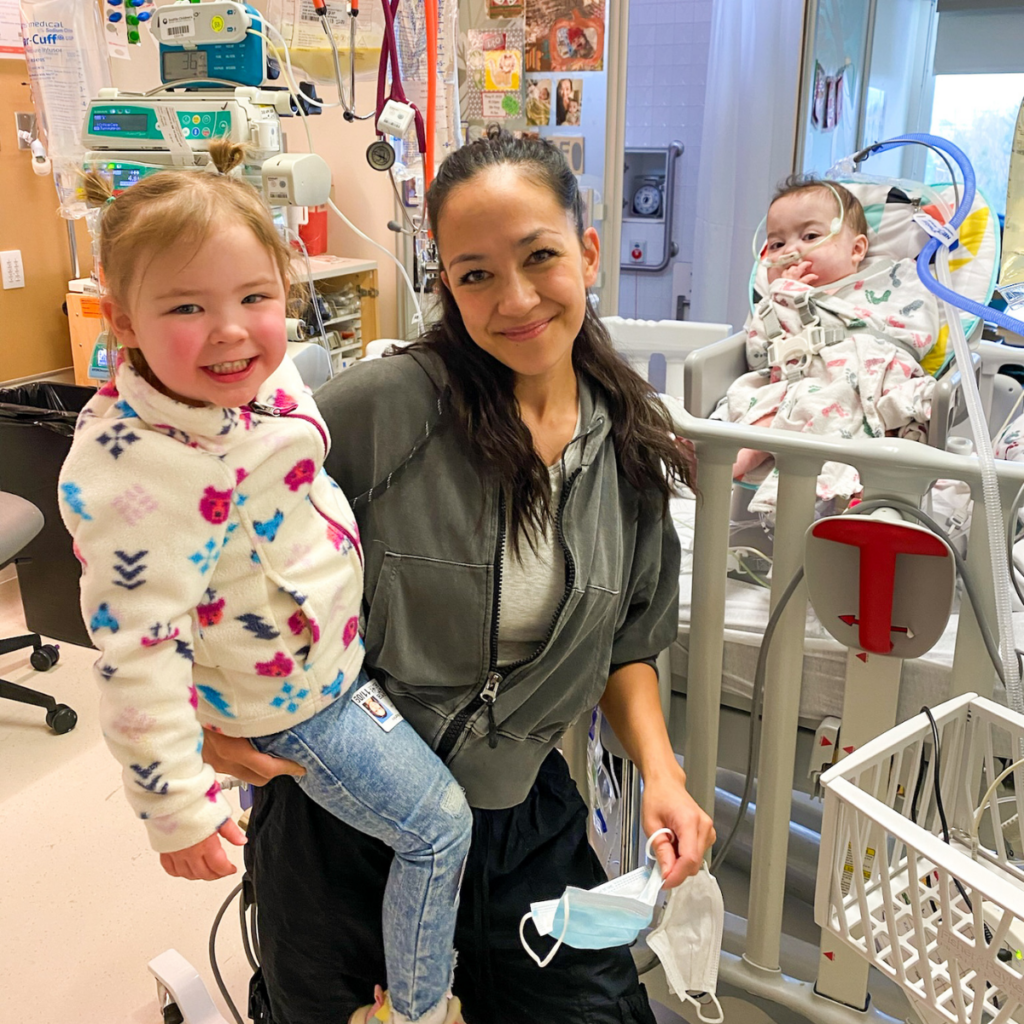
Vie: What will Leo’s journey look like when he comes home?
Rosie: Bringing Leo home will be a dream come true for us. We’re filled with anticipation for him to enjoy the simplest pleasures—feeling the sun and rain, playing with his siblings, taking bike rides with his dad, and snuggling with his momma whenever we please.
Despite our excitement, we recognize the road ahead is filled with challenges. Leo’s extensive time in the hospital, coupled with his recovery from surgeries, means he has significant developmental milestones still to reach. Speech, occupational, and physical therapies will be crucial for him. Because Leo has not eaten anything by mouth his whole life, I imagine feeding therapy will be one of our biggest challenges.
Moreover, we are mindful of the psychological aspects of his early experiences. The impact of his hospital stay, though not remembered consciously, could affect him subconsciously. Supporting him through any potential trauma with alternative healing methods is a priority for us. Our goal is to ensure Leo grows up feeling supported, loved, and capable of overcoming the challenges his early life has presented.
Vie: Is there anything you’d like to share with others going through similar situations?
Rosie: The biggest lesson I’ve learned throughout this entire journey is to honor myself in the duality of emotions you experience going through motherhood. The concept of the “both and” experience where you can simultaneously feel great joy AND heart-aching grief at the same time.
I’ve felt such immense grief having such pivotal experiences stripped from me; like not being able to hold Leo for such long periods of time, never getting to breastfeed him, or watching his newborn days slowly fade away while he’s in the hospital. I’ve also felt great joy, like when I was able to hold him for the first time, his first smile and his first laugh, or watching him interact with his brothers.
Motherhood cliches like “dont blink” and “the days are long but the years are short” feel exaggerated when you only get to experience part of these growing moments with your little one. I’ve learned to be more present in my days. When I am with Leo, I soak in all the snuggles, smiles, and tiny moments.
Sharing our story has opened up a well of support, proving that in vulnerability, there’s strength to be found. I’ve learned the importance of leaning on others, allowing their support to carry us through the toughest days.
Lend Your Heart: Immediate Support for Rosie & Leo
Supporting Rosie and Leo is simple and heartfelt. If you’re moved to help, a donation can be made through the Vie Athletics GoFundMe. If you live in Washington, join us on April 28, 2024 for a Vie Athletics workout and brunch at Farm12, with proceeds benefiting Leo’s recovery. Buy Tickets here (limited spots available).
Follow Leo’s journey & find daily inspiration on Instagram at @rosieclare13.
On behalf of all of your sisters at Vie Athletics, please know this – we love you, Rosie and Leo.
next up
go back
